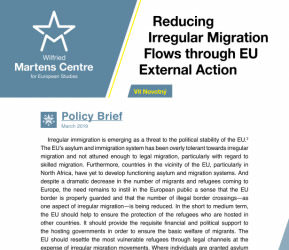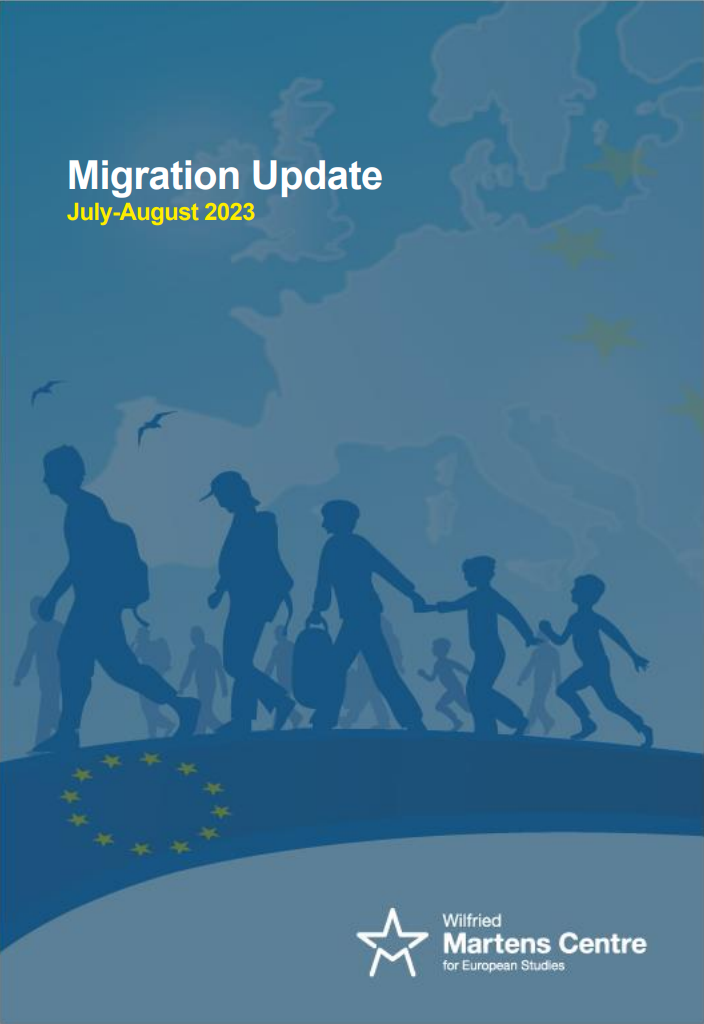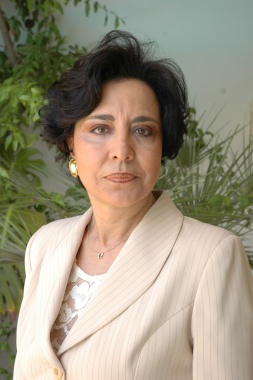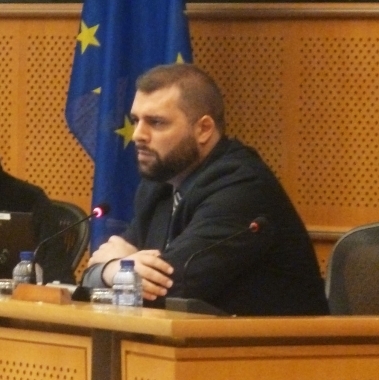On Thursday 28 June 2018, the European Council gave its endorsement to the concept of ‘regional disembarkation platforms’. These centres would be built in non-EU countries (presumably in North Africa) in cooperation with those countries. They would serve as facilities to which migrants rescued in the Mediterranean would be brought. Thus, a new option would be open to the EU, not to bring the rescued migrants automatically to one of the EU’s coastal member states.
This point from the Council conclusions elaborates one aspect of the broader trend to externalise EU migration controls. This trend is being promoted by the Austrian Chancellor Sebastian Kurz. Earlier in June, Kurz suggested sending immigrants back to the countries of transit and origin. These measures would stem mass migration and prevent drownings in the Mediterranean.
The idea of reception centres outside the EU borders has been circulating for decades now, without much tangible progress. The reason why implementing the idea has been so slow is the daunting scale of the challenge. The security, humanitarian, legal, political, diplomatic and financial aspects of the problem are multifaceted and interdependent in unexpected ways.
Agreement by a high number of institutions is necessary but the predictability of many players (national governments in and outside the EU and sub-national authorities and assorted tribal, religious and political groups in North Africa and the Middle East) is low.
Unlike Australia and the US which, each in a different way, have partly externalised migration controls, Europe is surrounded by several highly unstable regimes. Migration flows into the EU are notoriously mixed, including refugees and economic migrants from different countries. This increases the scope of the challenge that lies in front of the EU.
Main elements in externalising migration controls
The main elements in externalising immigration might be:
- significantly improved EU external border management, in cooperation with third countries
- determining asylum status of migrants as close to the country of origin as possible; this could be done at EU consulates or at reception centres set up by the EU
- guaranteeing safety, security and basic welfare in the reception centres
- encouraging voluntary returns to countries of origin
- offering (positive and negative) incentives to governments of non-EU countries, especially for accepting their own nationals
- potential resettlement of the most vulnerable individuals into the EU (resettlement means accepting selected refugees after security screening)
- decoupling of life-saving operations in the sea from bringing refugees into the EU.
Implementing these measures would herald a major step in tackling irregular migration. Thanks to common efforts, the migration crisis of three years ago is under control. No masses of refugees and migrants are crossing the Balkans into Western Europe, and the EU’s border management is now better than ever – although there is still a lot of room for improvement.
The EU is still searching for a recipe for cooperation with third countries on migration. The bloc is still struggling to mobilise finance, police the Mediterranean, agree on internal distribution of asylum seekers, implement returns and fulfil its resettlement pledges.
Develop expertise by starting small
Some EU members are conducting pilot schemes in externalising migration controls. We should look closely at, and learn from, these experiments. They promise to result in much-needed European expertise that can serve the larger goal of bringing migration controls closer to the sending countries:
- The EU-Turkey deal of 2016 should serve a major source of learning.
- In Niger, an EU-financed ‘multi-purpose centre’ in Agadez provides information and assistance to migrants, registers migrants and allows opportunities for safe and voluntary return and reintegration in the home country. Military presence has proved necessary. In January this year, the Italian government sent some 500 troops to the country to suppress migrant smuggling and exploitation.
- Also in Agadez and in other African cities, the French government has begun interviewing asylum seekers on a small scale. These individuals are typically returnees from Libya who have been pre-screened by the workers for the United Nations High Commissioner for Refugees (UNHCR).
- Certain EU members, for example Denmark, have been allowing asylum applications at their consulates, although only in a third country, not in a country of the asylum seeker’s origin.
The efforts conducted outside the EU borders have had a negligible influence on the numbers of people trying to cross the Mediterranean. But they send a message. Those with a credible claim have a chance of being granted asylum in the EU. Those without such a claim should not risk their lives with Libyan traffickers and smugglers.
Also, let us not forget Europe’s operations on its own territory. Italy and Greece have run, with the assistance of the EU and UNHCR, ‘hotspots’ to process asylum claims during the refugee wave of 2105-16. Evaluating this experience should be helpful in setting up similar centres outside the EU.
The Marshall Plan for Africa
Migration control always consists of carrots and sticks. A ‘Marshall Plan’ for Africa, advocated, for example, by Angela Merkel, would represent the former. The existing reincarnation of this plan, the Trust Fund for Africa, has so far been inadequate. Currently worth some €3.4 billion, the Trust Fund lacks public and private funds to make a real impact. But in the long run, helping Africa prosper – also by preferential trade tariffs – would motivate its inhabitants to stay at home.
On the legal front, two alternatives offer themselves.
Legal option one: reinterpret the Refugee Convention
As one option, the EU member states may start reinterpreting the Refugee Convention of 1951. As it is individual states, not the EU, who have signed up to the Refugee Convention, a coordinated approach would be essential.
Such a reinterpretation might be along the lines of the US and Australia. Australia does not apply the Convention outside its mainland territory. The US does not apply it outside its territorial waters. Both the US and Australia intercept unauthorised vessels. They save lives even outside their territorial waters but remove migrants to remote own or third-country territories, where lives are not in danger.
The rescued individuals have a chance of obtaining asylum (in the US case, only in a third country). Australia and the US take a punitive approach to ‘spontaneous’ asylum claims launched by those who attempt to cross the sea, but, in collaboration with UNHCR and the International Organisation for Migration, maintain resettlement programmes for those asylum seekers who enter through via regular channels.
Option two: encourage third countries to implement the Refugee Convention
A strategically more promising, although a much more demanding and long-term approach, would be to geographically extend the application of the Refugee Convention. With the exception of the Middle East, most countries in the immediate and distant EU neighbourhood are signatories of the Refugee Convention. Especially in North Africa though, official signatures on the Convention have not been followed up by setting up functioning asylum legislation.
The EU might incentivise these countries to adopt asylum legislation in line with their commitments under the Refugee Convention.
As one step further into the future, one can imagine the EU inducing neighbouring countries to buy into the EU’s ‘Dublin system’ of asylum seeker distribution. According to the Dublin rules, the first country of contact has responsibility for the asylum seeker who entered its territory.
Supported and co-financed by the EU, extending a similar system to Eastern Europe, the Western Balkans and North Africa would spread the burden of caring for refugees across many more countries than is currently the case. This would contribute to creating a supra-regional system of refuge governance in Europe and its surroundings.
Vít Novotný Crisis Immigration Migration North Africa














